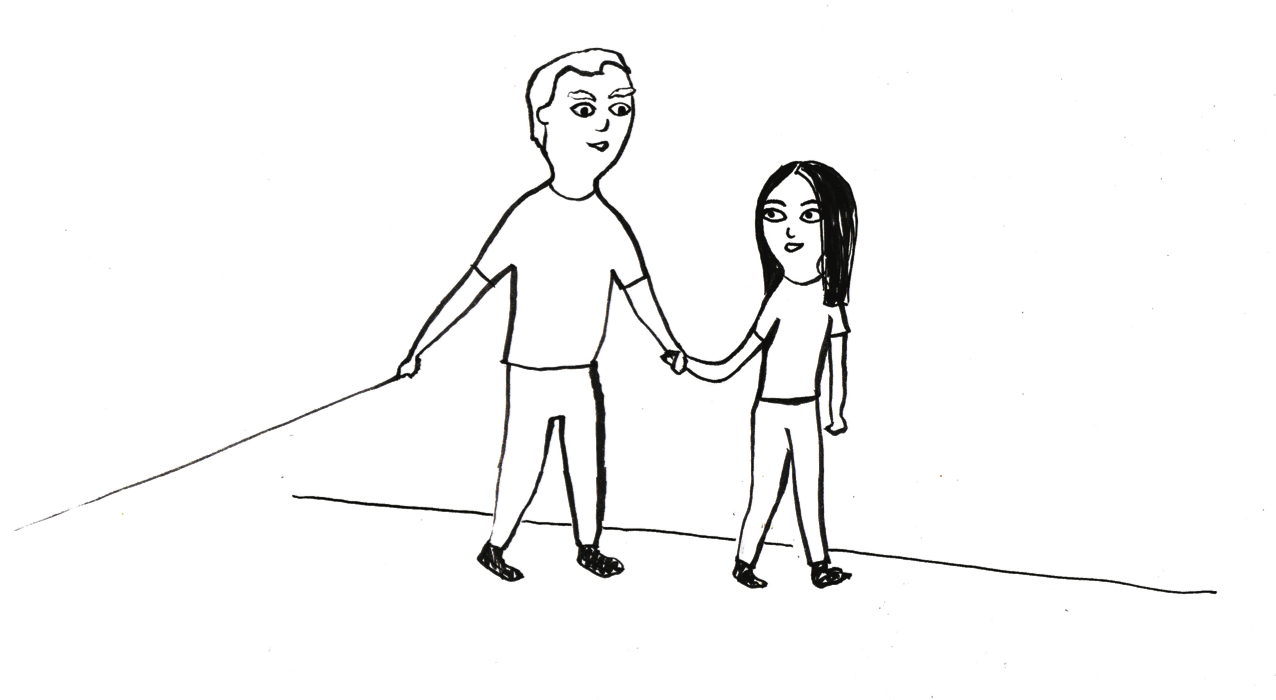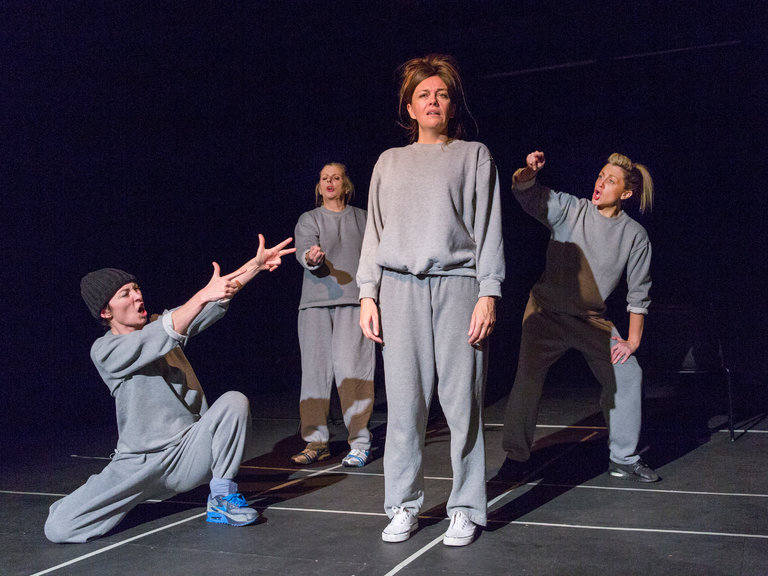Hidden from praise
Arts enable people to experience creativity in a way that transforms lives; even a single performance can change your life forever. At a conference organised by North East Prisoner Family Support (NEPACS), an organisation that seeks to enable positive futures for prisoners and their families in the north east of England by providing practical and emotional support, I heard how ‘Hidden Voices’, a project developed by NEPACS with Helix Arts, uses arts to connect children and families with fathers in prisons – with extraordinary results.
During weekly short sessions and through playful games such as Chinese whispers, the children wrote four songs that dealt with big issues. The music provided a framework for emotional development and connection and the facilitators signposted harmony, tempo and rhythm, but the children developed and performed the songs, and over the next 12 months together they wrote a complete programme. A hugely imaginative resource pack developed by artist Hope London and producer Kate Anderson, including facilitator notes, lyric sheets, work sheets, backing tracks and CDs, will be available from Helix Arts and NEPACS later in the year.

‘Hidden Voices’ illustration, Morph Creative
My role at the conference was to talk about the National Criminal Justice Arts Alliance (NCJAA) and to link the underpinning work of arts organisations in the criminal justice system with families. A short e-mail to our steering group revealed a plethora of their remarkable creative projects and showed the many ways in which arts organisations connect people in prisons with children, families and loved ones directly and indirectly through a wide range of creative arts and performance. To mention just a few:
- Synergy Theatre Company are rehearsing a musical for Christmas – ‘Baddies’, a co-production in a Youth Offender Institute for prisoners and their families.
- Geese Theatre UK‘s ‘Visiting Order (VO)’ tours prisons and encourages the audience to provide advice for the characters to “enhance their ability to be a family member despite their absence”.
- The Irene Taylor Trust, Music in Prison also has a range of activities. I highly recommend visiting their website and listening to ‘Lullaby’, a programme of songwriting by the Royal Philharmonic Orchestra Resound in collaboration with refugee and migrant mothers from the Praxis Community Project Wings Group, which is currently being extended to an adult male prison.
- Carlotta Allum, director of Stretch, was keen to press the “role of new digital technology in keeping in touch” and all the “creative ways people use digital arts, as a way of keeping ‘up to date’ with children on the outside”. Have a look at their interactive videos that express what is usually so hard to say.
At the conference there was simple joy in proof of the transformative impact of arts. Research typically demonstrates that every experience of art is an interaction between the artist/creator and the viewer/audience (or the critical self); each has some control over the meaning of the work and so the outcome at an individual level can’t be guaranteed. But in the ‘Hidden Voices’ case studies presented here, excellence in arts was effective for both artist and audience, and the steps to transformation were clear:
For children we heard that the work moderated anger, confusion and mental distress caused by their father’s incarceration by providing social and emotional support, “I didn’t feel judged by the musicians” and “Our voices weren’t hidden when we did this.” A participant aged 12 said “I even played the CD to my friends” which, according to his mum, for this highly intelligent but very private child, devastated by his father’s imprisonment, was “huge”.
For Dads in prison the work was almost too much to bear; shocking but also transformative because it strengthened the resolve to change; “like no other programme in prison, I felt broken more than ever before. How can I take your pain away?” But “walking away from the session strengthened me because it was about us, together.”
For families it gave them access to “normal stuff – kids going off and doing things”, which built attachment.
For a prisoner receiving visits from family members we now know the odds of reoffending are 39% lower than for those who had not received such visits (from Lord Farmer’s review, ‘The importance of strengthening prisoners family ties to prevent reoffending and reduce intergenerational crime’, undertaken in partnership with Clinks and published in August 2017).
In his speech at the conference Lord Farmer was right to shine a light on the disparities in family provision across the prison estate. He spoke about ‘extrovert prisons’ – those looking out and welcoming families in a very positive way, and ‘introvert prisons’ – not even able to provide a biscuit and a cup of tea for grandparents who had travelled miles. There will be many people who benefit from the government action plans now being put in place to take his recommendation for higher standards and more investment for the arts.
For me there were two standouts from the day. First was the simply the inspiration I took from the extraordinary skill and musicality of ‘Hidden Voices’.
The second thought that has stuck with me since the conference concerns the underlying issues in the Farmer review. Sure it’s about families, but mostly it’s about relationships. And this now brings me back to research, and our evidence library, where, in an evaluation of Changing Tunes, Cursley and Maruna [1] come close to a definition of what actually makes the difference. In a detailed, well-crafted narrative they describe the qualities in the relationship between the musicians and participants and note the importance of providing continuity in prison and community.
A sense of ‘family’ in the support and acceptance given by members of Changing Tunes staff perhaps helped to supplant previous unstable family lives of participants and also helped to make a bridge between the dehumanising influence of prison and coping with life outside prison again.
Through workshops inside and ‘on the out’, Changing Tunes provided a venue and workshops that enabled a continuity of practice. The musicians were non-judgmental yet firm setting ground-rules for engagement. They were unequivocal yet fostered mutual respect. Independent yet supportive.
All arts organisations bring vast professionalism, skill, experience and commitment to the work they do, yet they are so often hidden from praise. From the NCJAA steering group to ‘Hidden Voices’ to Changing Tunes; in delivering excellence in arts for people across all parts of the criminal justice system, arts organisations support the development of pro-social identity, a new sense of being for people, and bring creative energy and momentum to drive and sustain transformation. To borrow from Mahatma Gandhi, they do indeed “be the change they wish to see in the world.”
Header image: ‘Hidden Voices’ illustration, Morph Creative






